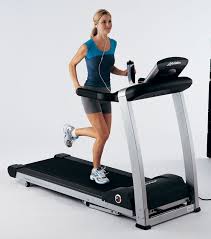If you're new to the world of fitness, first and foremost never over
do it, and always get cleared by a medical doctor if you think you may
have health considerations
Cardio short for cardiovascular training by design is different from
resistance training. The main focal point of cardio training is to
increase the fat burning process. This is accomplished by burning fat as
the main fuel source. Weight resistance training builds bigger muscles
and uses glucose (usable carbohydrates) as the main fuel source.
Although if cardio training is intense (not able to talk and exercise
simultaneously) glucose instead of fat will be used as the energy
substrate. This is due to the fact that fat doesn't burn fast enough to
keep up with rapid movements.
Like I mentioned before if you're a newbie to exercise take it slow
by walking in your neighbor 3 days a week for 20 min, for the first 2
weeks and progress up to 4-5 days a week for 45-60 min, at the end of
the 3rd and 4th week. After that, you can try more intense versions of
cardio including: treadmills, ellipticals, stationary bikes, jogging and
cross trainers.
Choose a level where talking with your exercise partner
is still possible for 15 minutes, 3x week for 2 weeks. You can progress
up to 45-60 min 3x week. A rudimentary way of determining intensity
level for these cardio modalities is 55% to 65% of your maximum heart
rate. You can estimate your maximum heart rate by subtracting your age
from 220, then multiple that by either.55 or.65.
This is a good range
that will keep you in the fat burning mode and not burning glucose that
you will need for your resistance training(glucose is the preferred fuel
source during weight training).
Although the age predicted max heart rate is the most common method
under use today it has one major flaw. Some 60 yr olds are in better
shape that some 30 yr olds, but this method would fail to recognize such
an important factor. I actually prefer using something called the Borg
Scale to determine intensity which I outline a little later in this
article.
Advantages of cardio training: When your muscles need oxygen and
nutrients it's your heart-lung complex (cardiovascular) that does the
job. When your body has waste products that need to be expelled like
carbon dioxide and metabolic wastes, your cardio system better be in tip
top shape, or illness and disease might soon follow. The better shape
you're in the more proficient your heart will be to pump blood to all
the various organs. This translates into more energy for you throughout
the day and a more rewarding and productive life.
An out of shape person has his or her heart working overtime just to
accomplish the minimal about of work required to maintain life. Now take
that person and try to make them do something active beyond sitting on
the couch. The heart will have a stressful time keeping up because it's
all ready working hard. Shortness of breath, rapid heart beat, wheezing,
loss of balance and fatigue are signs of a weak cardio system.
The more cardio trained you are, the less your heart has to work. Who
do you think has more energy a person with a resting heart rate of
80(how many times the heart beats in one minute) or a person with
resting heart rate of 110 beats per minute? The person with the resting
heart rate of 80 is more proficient in pumping blood throughout the body
compared to the person who needs an extra 30 beats per minute to get
the same amount of blood pumped throughout the body.
A good method of determining of how hard you're working is something
called the Borg Scale and my own preference of intensity feedback:
6, 7, 8 = very, very light
9, 10 = very light
11, 12 = fairly light
13, 14 = somewhat hard (correlates 55-65% age predicted max HR)
15, 16 = hard
17, 18 = very hard
19, 20 = very, very hard
9, 10 = very light
11, 12 = fairly light
13, 14 = somewhat hard (correlates 55-65% age predicted max HR)
15, 16 = hard
17, 18 = very hard
19, 20 = very, very hard
You're your own master here, which is why I like using this scale.
Begin with light sessions according to how you perceive your own
exertion and work your way up until you can maintain 2 somewhat hard
workouts for about 45-60 min, 2 x week along with another 2 light
workout sessions alternating between the 2 for a total of 4 sessions a
week.
Again, cardio training along with resistance training is essential to
good health. It is also the cheapest and easiest way to exercise, just
grab some running shoes and you're all set!
Damian@FitnHealthy







No comments:
Post a Comment